Do No Harm by Henry Marsh

Brilliant
Henry Marsh is one of Britain’s top neurosurgeons and in
this memoir he reflects upon his career, on the highs and lows. Especially the
lows. This is a fascinating insight into what can go wrong with the brain, that
require surgery. The heart breaking decisions surgeons need to make. The state
of British and Ukrainian medicine (Marsh travels a lot to Ukraine) and what top
surgeons think of the NHS (it’d be great if governments stopped interfering on
ideological grounds). Marsh’s prose is matter of fact and unflinchingly honest,
regrets are laid bare and he admits to mistakes that “ruin” people or even kill
them. This has been put forward for a Costa prize and I’m not surprised. A
gripping read throughout.
Overall - If you’re the sort of person who is interested in
the workings of biology, medicine or a fan of medical drama this is the book
for you.
Broken Monsters by Lauren Beukes

Good
Combining crime and urban fantasy Beukes writes a novel I
enjoyed but it was just a little off the mark to gain a Brilliant rating. A
mutilated body of the top half of a boy glued to the bottom half of a deer
starts a hunt for a new serial killer on the block in Detroit. Beukes does a
great job of creating the cop investigating, Gabi Versado, and her daughter,
who becomes integral, and the killer. Detroit’s art scene is vividly brought to
life and the plot bubbled away nicely. Beukes was spot on with social media in
the novel, which was very refreshing, so many modern novels try to ignore
mobile phones, the internet and social media, but Beukes interweaves it
beautifully. So what was off the mark? The supernatural element, it just felt
superfluous, a garnish rather than an integral ingredient. Still that is a
relatively minor niggle and I do recommend this book. I am also slightly
disappointed that Beukes has started writing books set exclusively in America,
I liked that her first two were set in her native South Africa.
Overall – Crime? Horror? urban fantasy? Doesn’t matter what
genre you put it in, give it a go
Travels in a thin country by Sara Wheeler
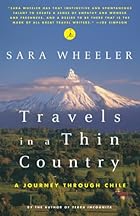
Average
Sara, as a young woman, travels to Chile and determines to
travel from the very top to the very bottom (in Antartica) and write about her
experiences. Whilst this does explore the country it does so in very brief
snapshots in each place and there is no overall narrative to bind it together.
I read it on holiday, naturally, and can remember very little of it now, a
matter of a few weeks later.
Overall - Not very evocative.
Distant Star by Roberto Bolano

Average
Novella about poets during the Pinochet era. Bolano
obviously took sly digs at actual poets and the overall tone is interesting but
in a novella it’s a very odd choice to abandon the plot half way through for an
extensive aside. I didn’t really enjoy this one, it failed to grip me and the
last third fails at being hard boiled. This is my second Bolano and the second
I’ve not really “got”. It came recommended and now I’m wondering if Bolano is
for me – perhaps I’m just not trying him at his best?
Overall - This struck me as a pretentious book.
Navidad & Matanza by Carlos Labbe
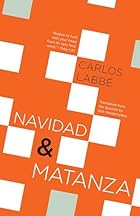
Good
The narrator(s), quite unreliable, is participating in a
writing experiment/game with six other particpants, all named after days of the
week. Each writes part of the story that the others must complete, if one fails
they disappear, an obvious allusion to the disappearances during the Pinochet
era. Our narrator is obsessed with a family whose the son and daughter
disappear in Navidad near the twin village of Matanza. This is a short but
chewy novel/novella which twists and turns through a complex structure and
plot. I was left a little mystified at the end, obviously missing some of its
allusions and Chileanisms. It is a very interesting, but confusing, read.
Overall – Not an easy book, but worthwhile reading
Ways of going home by Alejandro Zambra
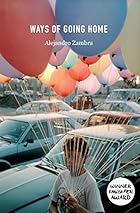
Good
Our narrator reflects on his childhood growing up in 1980’s
Chile as his parents and their friends try to cope with Pinochet’s regime. On
the night of the Santiago earthquake, a mysterious girl, called Claudia,
appears and his life is changed forever. This is another Chilean novella about
the Pinochet era that I read whilst travelling in Chile and the one that I
remember best. It’s a story about finding our way home (as per the title) both
physically and emotionally and obviously an allusion of how the country can
return ‘home’ after the dictatorship.
Overall – Small book, big themes, interesting reading,
recommended.
Pablo Neruda by Dominic Moran
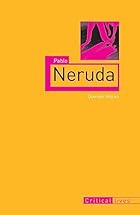
Good
A biography of that quintessential Chilean poet Pablo
Neruda, Nobel prize winner, diplomat, philanderer. Moran’s biography
concentrates on what the poetry says about the man going back and forth between
the works and what was happening in the world, in Chile and in Neruda’s life. A
controversial figure, unable to criticise Stalinist Russia because of his deeply
held belief in Communism. Fleeing from Franco’s Spain, but then spending great
effort to get others out once he was safe. Horrible to his wives, the third of
whom was utterly devoted to him. Neruda’s character is complex and fascinating.
Moran also gives us an oversight of some of the more famous poems and poetry
collections. It was very interesting to tour Neruda’s hoses in Santiago and
Valparaiso after reading this book.
Overall – A riveting, if not very flattering, portrait of a
complex character, one you cannot help but dislike.
On Liberty by Shami Chakrabarti

Good
Shami Chakrabati gave up a promising career working as a
lawyer for the home office to join Liberty, a cash-strapped charity fighting on
behalf of the oppressed for human rights. Here she tells her story and why
liberty (the concept) and Liberty (the organisation) are important. Human
Rights in this country (the UK) have come under attack lately as people leap on
board the UKIP bandwagon with its mistaken belief that some people do not
deserve any rights, and that rights have been assigned and enforced incorrectly
by faceless bureaucrats in Europe. What they don’t admit to is that Human
Rights were enshrined in law after the holocaust, written mostly by British
lawyers. Chakrabarti lays out the facts about the act, quotes it extensively,
debunks the counter-factual claims of the Right (including our delusional
Conservative party, as well as the nutters in UKIP) and explains with patience,
passion and intelligence why human rights are important.
Overall – People either side of the human rights debate
should read this book.
Why are we the good guys? by David Cromwell

Good
David Cromwell of Media Lens - http://www.medialens.org/ challenges the
assumption that the West is a force for good. To quote the back - <i> One
of the unspoken assumptions of the Western world is that we are great defenders
of human rights, a free press and the benefits of market economics. … the
prevailing view is that the West is essentially a force for good in the
wider world. Why Are We The Good Guys? is a provocative challenge of this
false ideology.</i>
Interweaved with Cromwell’s incisive analysis of the modern
media is a memoir of how he came to be an iconoclast, growing up in one of the
very few communist families in his home town. I like iconoclasts, I like to
have my assumptions and cosy opinions challenged, I think this is healthy, if
you have an opinion, understanding why you have that opinion and being able to
defend it is a useful skill. Cromwell makes many good points but I feel goes
too far the other way, we are neither universally good nor universally bad.
Perhaps it is his debating technique – to take a diametrically opposite view –
but some of what he said eroded his message.
Overall – Thought-provoking polemic
Bad book club by Robin Ince

Good
Robin Ince is a UK comedian that travels the country doing
gigs, on his travels he visits second hand bookshops looking for reading
material. Once bitten by the “this book is so bad it’s good” bug he goes on
search for the hidden gems of bad celebrity biographies, awful animal horror
stories (like [The crabs]) and romances with heaving bosoms, bizarre self-help
books and many more. Ince is best when he rants about books written by
newspaper columnists or celebrity culture and the chapter on sex has some very
bizarre material. However it’s not a book to read all in one go, as the humour
wears a little thin by the end. I also felt it was perhaps a little too long,
but maybe it was just that the novelty wore off a few chapters before the end.
Saying that though Ince is obviously passionate about writing and I really
enjoyed most of the book.
Overall – A celebration of bad writing and bad book ideas.
The best American non-required reading edited by Daniel
Handler (aka Lemony Snickett)

Average
Every year high school students through the auspices of 826
Valencia (and the other 826 locations USA wide) read and choose fiction and
non-fiction to be included in an anthology. This was set up by [[Dave Eggers]]
and this year, for the first time, edited by Daniel Handler. This should be a
very mixed bag right? There are non-fiction pieces, fiction, even extracts from
Graphic Novels. But I found it all to be very similar, and, dare I say, a bit
bland. So much so that I couldn’t reach the end (I have about three stories
left to write and two poems). I started by trying to read in one, went to
reading in between other books and it’s now on the TGRO (To Get Rid Of pile).
Overall – What should be eclectic and interesting is somehow
similar and bland
How not to write a novel by Sandra Newman
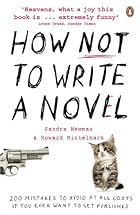
Good
Turning the usual writing advice on its head, and providing
plenty of examples of deliciously bad writing, the authors of this little help
novel tell you how to write an unpublishable novel. How to write bad
characters, bad plot, bad dialogue, bad settings, bad pacing, the works. This
is entertaining and educational and I read it in a few hours.
Overall – Lots of fun writing guide
Sunbathing Naked by Guy Kennaway
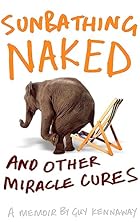
Good
Guy Kennaway has psoriasis, and this is his skin’s memoir.
Kennaway rushes through his biography up until he gets the dreaded red patches,
then gives us a bit of context with a little bit of history of psoriasis, and
the fact that “lepers” in the Bible should actually be Psoraitics, not
sufferers of Hansard’s Disease as commonly assumed & provides the
etymological evidence for this. There is a call back to this later as he
discusses the Jesus cures a Leper parts of the Bible. He blends in the biographies
of other sufferers (which he admits are conglomerates of people he’s met,
rather than actual people) and an extended article about the wonders of
sunbathing naked in the Dead Sea skin resort in Israel during one of its
occasional wars with Palestine. Then, when he leaves Israel in remission, the
book takes a bizarre turn as Kennaway becomes a sex addict, being free from the
crippling self-hate he has when covered in psoriatic lesions. This bit of the
book was both sensational and also a little coy – he discusses in detail his
treatment in rehab, but says nothing about how this affected his family, who I
assume he is still with as he thanks them in the acknowledgements. Apart from
this odd bit though this is a good book to get an idea of what psoriasis (and other
skin disease) sufferers go through on a daily basis, not only physically but
mentally too.
Overall – Interesting memoir about a struggle with a disease
that affects self-esteem
The brothers Cabal by Jonathan L Howard

Brilliant
Hmmm how to review this without spoilers of the previous
novels? By not mentioning the plot (which is great btw and the bit where the
wotsit and the thingy were introduced was amazing) but just by saying – it’s
like the previous books, but better. Has some characters you’ll know, and some
you won’t. Has acts of derring do and wicked plots and perfidious practices.
And there are brothers, they are named Cabal and you may or may not have met
them both in earlier books. There are monsters from beyond the sane angles of
reality of course and dark gloomy castles, and it may not be giving too much
away to state that there is a train, but not that train, and there may also be
sarcasm and necromancy.
Overall - This really is a great series and if you haven’t
spent time with Johannes Cabal then you should remedy that immediately.
No comments:
Post a Comment